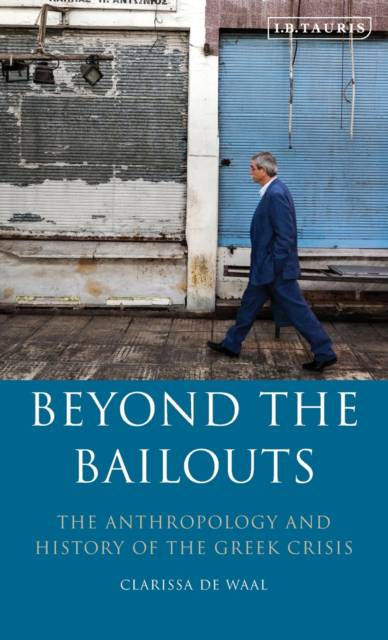
- Afhalen na 1 uur in een winkel met voorraad
- Gratis thuislevering in België vanaf € 30
- Ruim aanbod met 7 miljoen producten
- Afhalen na 1 uur in een winkel met voorraad
- Gratis thuislevering in België vanaf € 30
- Ruim aanbod met 7 miljoen producten
Zoeken
€ 220,45
+ 440 punten
Uitvoering
Omschrijving
Since the nineteenth century, Greek financial and economic crises have been an enduring problem, most recently engulfing the European Union and EU member states. The latest crisis, beginning in 2010, has been - and continues to be - a headline news story across the continent. With a radically different approach and methodology, this anthropological study brings new insights to our understanding of the Greek crises by combining historical material from before and after the nineteenth century War of Independence with extensive longitudinal ethnographic research. The ethnography covers two distinct periods - the 1980s and the current crisis years - and compares Mystras and Kefala, two villages in southern Greece, each of which has responded quite differently to economic circumstances. Analysis of this divergence highlights the book's central point that an ideology of aspiration to work in the public sector, pervasive in Greek society since the nineteenth century, has been a major contributor to Greece's problematic economic development. Shedding new light on previously under-researched anthropological and sociological aspects of the Greek economic crisis, this book will be essential reading for economists, anthropologists and historians.
Specificaties
Betrokkenen
- Auteur(s):
- Uitgeverij:
Inhoud
- Aantal bladzijden:
- 192
- Taal:
- Engels
- Reeks:
Eigenschappen
- Productcode (EAN):
- 9781788312592
- Verschijningsdatum:
- 30/08/2018
- Uitvoering:
- Hardcover
- Formaat:
- Genaaid
- Afmetingen:
- 137 mm x 218 mm
- Gewicht:
- 385 g

Alleen bij Standaard Boekhandel
+ 440 punten op je klantenkaart van Standaard Boekhandel
Beoordelingen
We publiceren alleen reviews die voldoen aan de voorwaarden voor reviews. Bekijk onze voorwaarden voor reviews.











